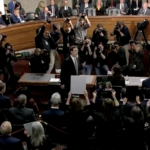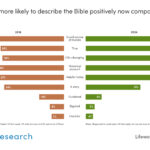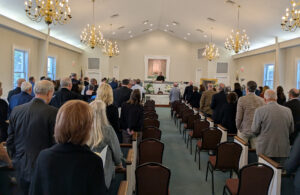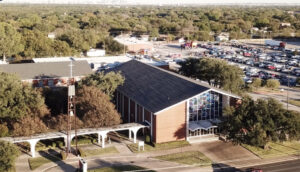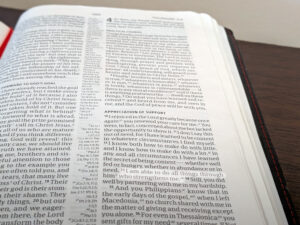
WASHINGTON (BP) – A growing and diverse share of U.S. adults believe religion is gaining influence in American life, Pew Research Center said Oct. 20, although the share remains in the minority.
Growing percentages also have a favorable view of religion and believe their religious beliefs are at odds with mainstream culture, Pew found.
“These evolving attitudes on religion in public life appear to be shared widely, rather than confined to specific groups,” researchers wrote. “In recent years, Americans across a variety of religious groups, in both political parties and in all age groups have become more likely to say religion is gaining influence, to express positive views about religion, and to feel that their religious beliefs are at least somewhat in conflict with the mainstream.”
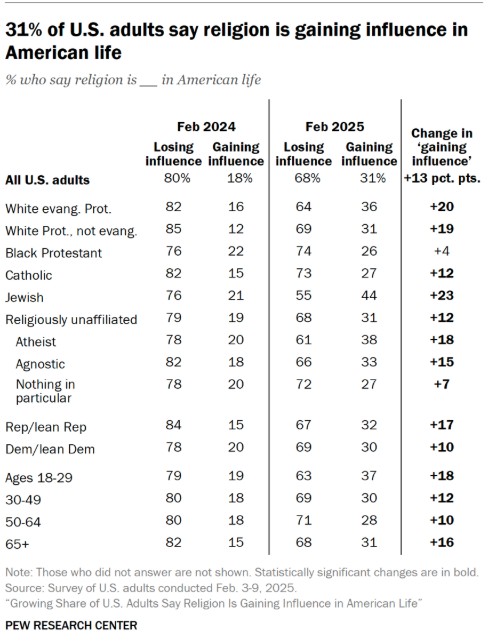
Nearly a third of those surveyed in February, 31 percent, said religion is gaining influence here, up from 18 percent in February 2024 and indicating the highest percentage in 15 years, Pew said.
The largest percentage point increase was seen among Jews, with 44 percent saying in 2025 that religion is gaining influence, compared to 21 percent in 2024. Among white Evangelical Protestants, the increase is 20 percentage points – up from 16 percent to 36 percent. The smallest growth in the perception was seen among Black Protestants, with 26 percent saying religion is gaining influence, up from 22 percent who said so the previous year.
Still, 68 percent of all U.S. adults said religion is losing influence in American life, a majority that has decreased from the 80 percent who said so last year. But a majority of Americans have said since at least since 2002 that religion is losing its influence here. In 2002, Pew gauged that majority at 52 percent.
Among other key findings:
- Nearly 6 in 10 U.S. adults have a positive view of religion, researchers said, based on findings that 59 percent either believe religion’s growing influence is a good thing or comparatively that religion’s declining influence is bad.
- A fifth of American adults have a negative view of religion, researchers said, with 20 percent either saying it is bad that religion’s influence is growing, or it is good that religion’s influence is declining.
“The shares of Americans expressing positive views of religion in 2024 and 2025 are up significantly from 2022 and 2019,” researchers wrote of their findings, “indicating an overall shift toward more positive views about religion’s role in American life over the past five years or so.”
For the first time in the history of the survey, a majority of respondents – 58 percent – said their religious beliefs are at odds with mainstream culture, compared to 48 percent in 2024. Specifically, latest findings show 21 percent perceive their religion at odds with culture a great deal of the time, and 37 percent say the two are at odds some of the time.
Pew Research Center based the findings on a nationally representative survey conducted online and by phone Feb. 3-9 among 9,544 U.S. adults, and focused on views of religion in public life. Additional findings include results from a nationally representative sample conducted May among 8,937 U.S. adults.
From the May survey, Pew found that:
- 48 percent of Americans believe more than one religion may be true (although the question did not gauge which specific religions respondents believe might be true); 26 percent said only one religion is true, and 24 percent said there is little to no truth in any religion.
- 29 percent of Christians said loving your country is essential to their view of what being Christian means; 47 percent said loving your country is important but not essential to being Christian, while 24 percent said it’s not important.
The findings are available at pewresearch.org.


